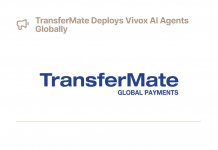Know Your Business (KYB) and Anti-Money Laundering (AML) are critical parts of the compliance ecosystem, but how aligned are they? FullCircl, a SaaS platform renowned for eliminating regulatory and verification hurdles, recently delved into the role of KYB in the AML process.
KYB, also known as corporate verification, is a crucial process in verifying and identifying the legitimacy of business entities. This B2B due diligence provides the necessary insights to mitigate risks and ensure regulatory compliance when forming new business relationships.
AML works hand-in-hand with KYB. AML measures, such as checking for Politically Exposed Persons (PEPs), sanctions, adverse media, and watchlists, are vital in verifying directors or beneficial owners and ensuring the business itself is not involved in illicit activities. KYB and AML processes share several objectives, including information collection and reducing financial crime.
AML and KYB regulations are fundamental in preventing businesses from engaging in money laundering, terrorist financing, and other financial crimes. The 6th Anti-Money Laundering Directive (6AMLD) is a key regulation that expanded criminal liability to include legal persons such as organisations and partnerships. This has prompted regulated entities to adopt stricter business verification practices to avoid AML failings.
The KYB process begins with gathering basic information about a business, such as its legal name, registration number, and date of incorporation. Additional details like address and country of operation further aid in verification and risk assessment. Businesses can choose between automated and manual KYB verification methods.
Automated KYB verification uses software to aggregate data from various sources, producing comprehensive reports on business overview, financials, credit, ownership structure, beneficial ownership, and adverse information. Compliance teams then review these reports to determine the suitability of onboarding.
Manual KYB verification involves using sources like Companies House, public sanctions lists, credit reference agencies, and specialist data providers. This method is time-consuming and prone to errors but is preferred by businesses with large compliance teams or legacy systems.
After completing the KYB check, businesses conduct AML checks on the client and its shareholders, verifying them against global PEPs, sanctions, and adverse media lists. Matches are manually reviewed to decide on the onboarding process, with increased monitoring for high-risk clients and rejection for sanctioned individuals.
KYB and AML checks are vital across various industries, especially those handling financial transactions or susceptible to money laundering. Financial institutions, FinTech companies, legal and professional services, and gambling service providers are prime examples. Robust KYB procedures help these industries comply with regulations, mitigate financial crimes, and build trust in business relationships.
Compliance with KYB and AML regulations not only protects businesses from fines and reputational damage but also enhances trust among stakeholders. Thorough due diligence and global regulatory compliance preserve the integrity and credibility of companies.
Leveraging advanced KYB and AML solutions, such as identity verification platforms, can streamline the compliance process. FullCircl, for instance, provides powerful KYC, KYB, AML, and anti-fraud software, ensuring businesses meet compliance standards while fostering trust with their clients.
Read the full guide here.
Keep up with all the latest FinTech news here.
Copyright © 2024 FinTech Global











